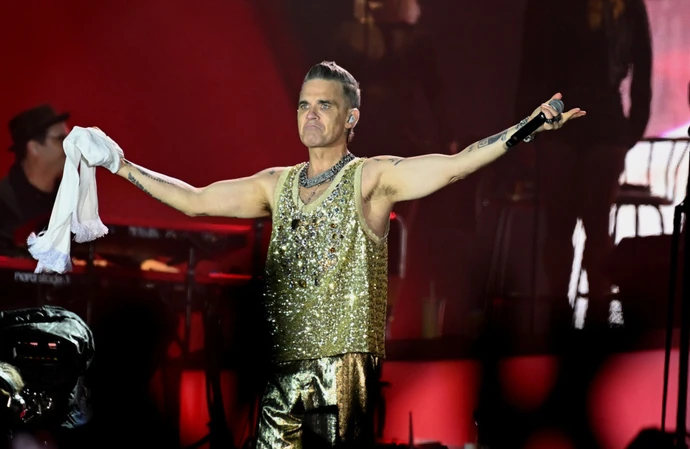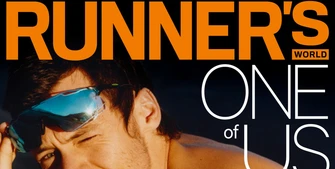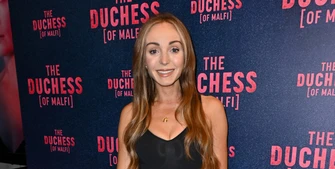Robbie Williams has started to 'respect' himself as a performer: 'I just thought I was lucky!'
Robbie Williams has only just started to "respect" himself as a performer despite previously thinking he had just been "lucky" to reach his heights of pop stardom.

Robbie Williams has only just started to "respect" himself as a performer.
The 49-year-old pop star shot to fame as a member of Take That in the early 1990s before breaking out as a solo artist with hits like 'Rock DJ' and 'Angels' but admitted that up until this point in time, he always just thought he had been "lucky" with his career.
He is quoted by The Sun newspaper's Bizarre column as saying: "I'm just beginning to become fully formed as an entertainer. Whatever I was getting away with appealed to a great number of people because they bought tickets, came back and saw it again. It’s all been bluff and b******* all my life.
"This year is the first year as a 49-year-old where I respect myself now. Before, I just thought I was taking the p*** and being lucky."
The 'Candy' hitmaker recently opened up about the personal struggles he has endured throughout his years in the spotlight in his self-titled Netflix documentary and admitted at the time he still suffers from imposter syndrome as he still feels like that teenager who auditioned for a place in a boy band.
He said: "I'm terrified... There's still a bit of me going, I'm still Rob from Stoke-on-Trent. I'm still 16. It's one of those moments where I think I'm going to be found out."
At the time, Robbie explained that reliving his trauma for the cameras had been a "nightmare" and was like watching himself in a car crash.
He told The Saturday Times: "It’s like those nightmares where you don’t know what’s happening and you can’t remember anything and you’re terrified. It was like that all night.
"Oh I've got them all! Dyspraxia, dyslexia, ADHD, neurodiversity, body dysmorphia, hypervigilance…
"It was like watching a crash you were involved in, but in slo-mo. [Making the documentary] was like enduring your mental illness at a very, very slow pace, over a very, very long time. And it’s a niche thing to experience, you know. There aren’t many support groups for it. When they asked me to make the documentary, I came up with a jingle for it. ‘Trauma watch!/ Trauma watch!/ Have a trauma watch!/ I was in Take That then I left Take That/ Then I did drugs and I got real fat. They didn’t use that in the end."







